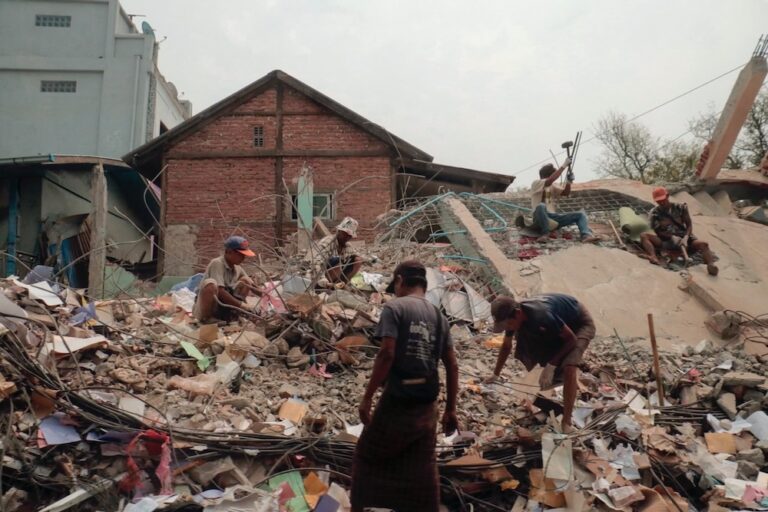A newly announced policy will allow 178 journals and magazines, in six categories, to publish stories without prior submission to the censorship board for approval.
(Mizzima News/IFEX) – 9 June 2011 – A new censorship policy was unveiled by the Burmese government on 8 June 2011, allowing 178 journals and magazines to publish without submitting stories to the censorship board prior to publication.
The 82 journals and 96 magazines are published in six categories, including the arts, knowledge, health, sports, children and technology. The new policy will go into effect on 10 June.
The exemption also covers government lottery winning ticket announcements, storybooks, cartoon strips and novels.
A second category of publications covering news, economics, religion, crime and education must continue to submit copies of stories to the censorship board, according to the new regulation from the Information Ministry.
The announcement was made by Director General Ye Tint, of the Printing and Publishing office, Director General Ye Htut, of the Information and Public Relations Department, Deputy Director General Tint Swe and Director Myo Myint Maung, of the Press Scrutiny and Registration Division (censorship board), during a press conference at the Rangoon Printing and Publishing Department office.
“The officials said that they would also relax the rules on the second group if progress is seen in the first group under the new regulation,” said Ko Ko (Hset Hmu), the secretary of the Myanmar Writers and Journalists Association.
Currently, there are 176 journals and 180 magazines and newspapers in circulation, Director General Ye Htut told reporters.
Under the new regulations, publishers and printers must provide a deposit to the censorship board to cover any potential libel or defamation suits, Ko Ko said, and to cover any fines that may be levied by the board for violations of rules and regulations.
The relaxation of censorship on almost half of the publications in Burma was welcomed by publishers and editors, who will now have more responsibility for their publications, Ko Ko noted. He said he is worried about more problems cropping up in media ethics and violations of libel or defamation laws.
“It will depend on the ethics and quality of the editors,” he said. “For instance, unqualified and unethical editors will face problems of violating state laws and other media laws. Pop journals covering news related to show business and celebrities may face defamation cases and libel suits. As for qualified and ethical editors, the new regulations and relaxation of the rules will not give them any problems,” he said.
A total of 180 journals and magazines in the second group will still need to submit draft copies to the censorship board prior to publication.
At least four groups are still awaiting a publication license to start daily newspapers.
Director General Ye Htut said, “We cannot grant such licenses at the moment. We are still scrutinizing this issue. It is still under study, so please wait and they will be granted when the time is right.”
More than 200 editors, reporters, publishers and printers from domestic media, as well as foreign reporters, attended the press conference.
After General Ne Win took power in a March 1962 coup, the Printers and Publishers Registration Law was enacted in the same year. In addition to the new law, other media laws enacted during the colonial period and during the caretaker government of 1958-60 are still in force.


